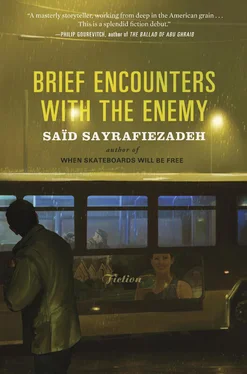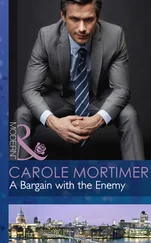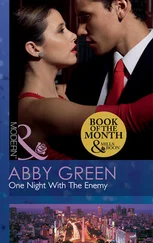But when I hung up, I was overcome with guilt, choked with guilt, almost to the point of tears. I thought of my grandmother, alone in her apartment, rheumatoid arthritis, suffering for years before she died. I put my elbows on my knees, I hung my head in shame, my tie dangled down. Now it was I who needed to atone.
Next it was a girl on the line. She sounded beautiful. She sounded forgiving. She wanted to know if she could have two tickets for the Shakespeare play. “Yes, you can,” I said, my voice heavy with remorse. If she had said one kind thing, anything, I would have cried in gratitude. She sounded like she was a brunette with glasses and a nice ass. I bet she was smart and read books. I bet she’d gone to a good college and utilized her opportunities. I helped her with everything she needed and I got her great seats at a good price. I wanted to ask if she was going to the show with her boyfriend. “Are you married?” I wanted to ask. I once made a terrible mistake years ago by inquiring if the girl on the other end of the line was married. This was against company policy, but she had sounded so beautiful, and my desire had been so unbearable. I’d managed to establish a rapport with her in a few minutes on the phone, and I’d kept talking to her well after sealing the deal. Just so I could talk. I didn’t care about company policy, I didn’t care about losing commission. She had laughed at everything I said. “You sound tall,” she had said over the phone. “Are you tall?”
“Not that tall,” I said.
I was picturing her short, but when I met her a few days later, I was shocked to see that she was tiny, and her hair was red, and she had freckles and wore giant earrings. I sat across the table from her at T.G.I. Friday’s, looking down at my plate of salmon and listening to her voice, trying to recall the image I’d had of her on the phone in my cubicle.
The girl who wanted tickets for Shakespeare was happy with what I’d done for her. She left it at that and hung up. The next six callers were happy too. I was happy for their happiness. I was the portal through which they must pass on their way to pleasure. I was the faceless voice on the end of the line that enabled them to have those memorable evenings, those exciting afternoons. If not for me, the little boys and girls of the city would never be able to see the clowns and elephants. They didn’t know what I’d done for them, those little boys and girls, but I knew, and that was good enough for me.
By the tenth caller, I was bitter again. I was callous again. I knew I would be. My mouth was dry, my ears were buzzing. Plus I had to piss.
This is how my days go, bringg, bringg; bringg, bringg , every day pretty much the same as the day before: intimacy in intervals of three minutes or less — three minutes or less if you want to make enough commission — holding at bay my desire and antagonism, and also my boredom, and not a little regret. The only thing that made today different, that made it stand out from any of the days before, was that Wally was coming back.

We gathered in the conference room. I was late getting there. I made a point of being late by staying in the bathroom. By the time I walked in, he still hadn’t arrived. This added to my aggravation.
Everyone else was there, one hundred people standing shoulder to shoulder, surrounded by an overblown display of congratulation. If you didn’t know it was January, you would have thought it was the Fourth of July. There was an American-flag cake in the middle of the table, three feet long and three inches thick, there were red-white-and-blue plates and napkins, there were red-white-and-blue cans of Coke, there were little ninety-nine-cent American flags. Hanging on the walls were the red-white-and-blue handmade signs telling Wally what a good job he’d done.
Three of the girls came my way. Amber and Melissa and Tiffany.
“Here you go, hon,” they said.
“Here you go, Zeke.”
“Here’s one for you.”
They stuck an American-flag pin in my lapel. They touched me and leaned close.
“What I really want is a slice of that cake,” I said suggestively.
“That’s for later, hon.”
They had French manicures, they had highlights, they smelled like apricots.
Twelve months ago, almost to the day, we’d clumped together in this same room, one hundred of us, saying goodbye to Wally. Everyone had cheered. Everyone had stomped their feet and chanted, “Wally, Wally! U.S.A.!” I’d done it too, despite myself. That is an example of how you can get caught up in the spirit of the moment.
About an hour after his going-away party, Wally had come into my cubicle and stood by my desk, close to my desk, playing with my paper clips and waiting for me to get off the phone. When I hung up, he said, “I just wanted to say, see you around sometime, Zeke.” He had his mailbag slung over his shoulder, half filled with mail. He looked like a paperboy. I’d known him from the neighborhood when snot had dripped from his nose even in the summertime, when he’d been undersize and chubby and the teachers had thought he might be retarded. Everyone had made fun of him except for me. I’d had compassion for some reason. I’d been the one who had chased down two boys who’d been jabbing him in the belly with sticks. “Aw, we was just playing around.” Those boys were bigger than me, but they cowered. By high school I had built a reputation for being fearless and exceptional. I’d been the one who had stood onstage at graduation and told the other students what life held in store for them. “Give your best, get your best!” I’d said. The parents had loved that. But it was Wally, slow and runny Wally, who, on his own initiative, had gone down to the Career Center one morning before work and signed up for the army, and I was the one who sat at a desk all day long with a headset on.
So when he came into my cubicle to say goodbye, I said, without missing a beat, “I’m real proud of you.” I tried to say it like I meant it, hoping he wouldn’t detect that underneath was condescension, and underneath the condescension was jealousy, and after that lay melancholy.
The next thing I knew, he was sitting down on the floor, Wally was, sitting down between my cubicle wall and desk, wedging himself in as if playing hide-and-seek, hugging his mailbag to his chest with both arms and squeezing his knees up to his chin, all the while whispering something over and over, something that I had to lean down to hear, something about being scared, Zeke, about not wanting to go, Zeke.
“I don’t want to die, Zeke,” he nearly hyperventilated. He looked at me with baby-blue eyes that were filled with tears.
I stood up so fast that the wire from my headset caught around the arm of my swivel chair and yanked the headset off my head like a rubber band. “You’re not going to die!” I said.
“Yes,” he said, “I am.” He said it like he knew it.
After that, I didn’t know what to say. What I really wanted to do was jab him in the belly with a stick. Maybe he was going to die. Maybe this was what his whole life had been leading up to and he was going to be one of those unlucky soldiers who caught it, one of those few unlucky soldiers who never made it back out of the five hundred thousand who did. He’d come back in a coffin with the flag draped over the top. I’d go to his funeral. His dad would hug me and say, “Thank you for everything.”
“You have a greater chance of dying in a car crash,” I said. But Wally didn’t want to hear about odds. He shook his head, his lips trembled, snot leaked out. I squatted down like an elementary school teacher would, hand on his knee, firm but consoling tone. “You’re not going to die,” I cooed. I mustered compassion from somewhere, and I must have said it with enough conviction that he appeared to believe me. A few moments later he rolled himself up off the floor, wiped his nose on his hand, wiped his hand on his pants, tucked his shirt into his pants.
Читать дальше













